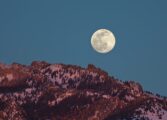By Page H. Gifford
Correspondent
The Lake Monticello Wildlife Committee will present a program on the importance of pollination on March 26, at 2 p.m. at the Lake Monticello Golf Course clubhouse.
Allison Wickham from Siller Pollinating Co. will discuss their mission to stop the decline in the bee population. Major food crops, including fruits, vegetables, and nuts depend on honey bees and other pollinators. The reasons for the decline are habitat destruction leading to a lack of food sources for the bees, intense farming practices, and pesticides.
“Pollination is important because about 1/3 of the food we eat is directly dependent on pollinators,” said Wickham, who gave an example. “Coffee beans are seeds of the coffee tree. When the coffee tree flowers, it depends on insects to pollinate it. If it were not pollinated by insects, the seed and fruit would never grow. No bees – no coffee, see the seriousness of the issue?” She said that some would argue that pollination is responsible for more than half of what we eat because there are also indirect effects. She cited another example, noting that the common cattle feed in the American West is alfalfa.
“Alfalfa is insect pollinated. Without pollinators – no alfalfa seed, no alfalfa, hungry cows, no beef. Pollinators are so critical to our food systems; we would go hungry without them. And most pollinator species are in a steep population decline.”
She explained why this is happening. Some of the main reasons are the loss of habitat due to increased human development, increased pesticide use over the last 100 years, invasive species getting moved around due to globalization, and weather pattern changes.
“It might be tough to combat human development, and it might be hard to combat weather pattern changes, but all of us can help with the loss of habitat and use of pesticide,” she said. “The best thing that all of us can do to help is plant flowers. More food for pollinators means more pollinators.”
She urged people to plant flowers and to leave your gardens brown and messy until the last frost.
Also, don’t burn the leaves. “These are all things we can do to help increase pollinator populations because pollinators often nest in those materials over winter.”
She will also be explaining NectarShare and the PollenBox, educational projects by Siller Pollinator that will teach how to help pollinators.
For more information about the program, contact Jorja Stark at jorja.stark79@gmail.com and visit the Siller Pollinator Co. at https://sillerpollinatorcompany.com/.




